U.S. Army Veteran and Medal of Honor Recipient Clint Romesha is a Good Dude
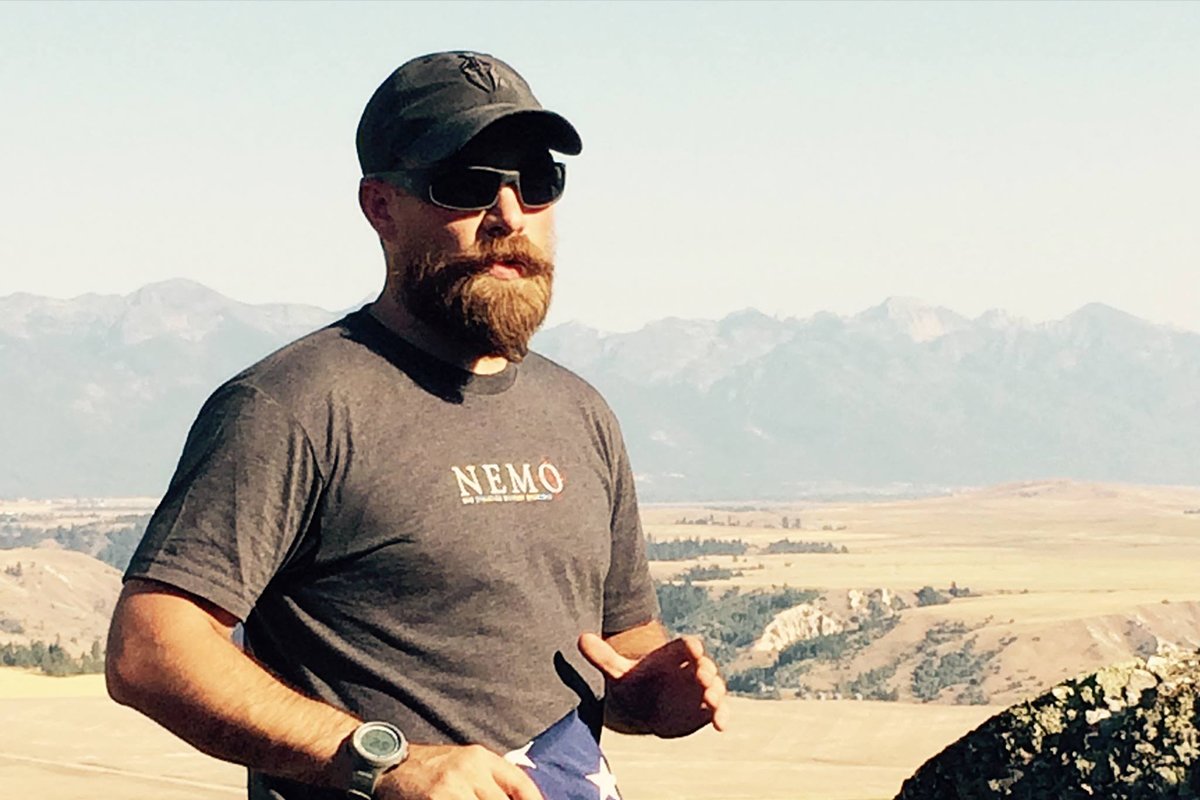
Photo courtesy of Clint Romesha/Facebook.
If you know one thing about U.S. Army veteran Clint Romesha, it’s that he earned the Medal of Honor for his actions in Afghanistan in 2009 during the Battle of Kamdesh. If you know another, it’s that he wrote a book, “Red Platoon,” about that battle. What most people don’t know — or at least what’s not obvious to the casual observer — is that Romesha doesn’t particularly like the spotlight that being a Medal of Honor recipient has put him in.
“I’ve always been a very quiet personality,” Romesha said during a recent phone interview with Coffee or Die. “I like to have one-on-one conversations with people and not be the center of attention in the middle of a crowd. It’s just not my personality. So that was very much a shock, something I’m still trying to get used to.”
Romesha grew up in a small town in Northern California, and his family has a history of military service. His grandfather served in World War II, his father in Vietnam, and two of his older brothers joined the service when they turned 18. “It wasn’t one of those ‘to be a Romesha, you had to do it,’ but it was just always encouraged,” he said.
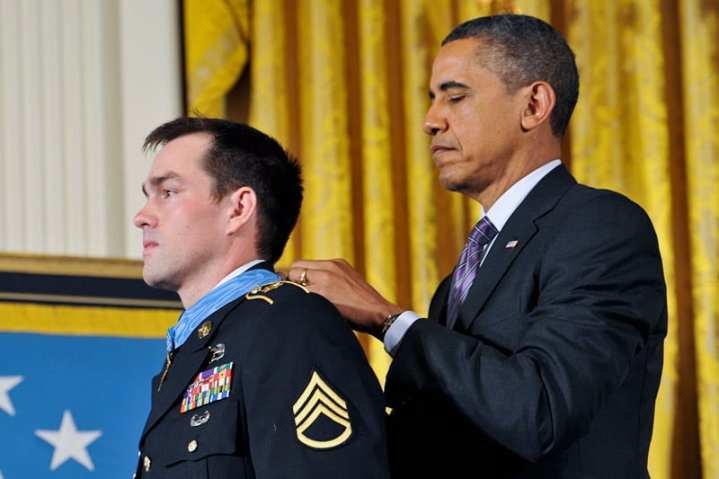
In 1999, Romesha enlisted in the Army, expecting to “just do three years, check the box, get the GI bill, grow up a little bit, come back home, have some silly stories of being too drunk in Germany and escaping the polizei or something like that.” He wasn’t going to make a career out of it — nor did he think his service would define his future.
The first sign that things wouldn’t be as cut and dry as he expected was the terrorist attacks of Sept. 11, 2001. Romesha was doing maneuvers in Germany when his unit was called into formation in the early afternoon and briefed on the situation. No one had been watching television or knew what was happening.
“We got there and formed up, and our colonel came out,” Romesha recalled. “He gave us a little pep talk like, ‘Hey, they flew planes into the towers there in New York, and everything from this day forward is going to change.’”
Romesha deployed four times during his nearly 12-year career as an armor crewman and cavalry scout. His final deployment was to Afghanistan in 2009, which would be his second sign that his military service would have a bigger impact on his life than he planned. That deployment is where he would earn the highest U.S. military award for valor. However, when asked about the most significant part of his military service, he doesn’t mention the Battle of Kamdesh — he talks about leadership.
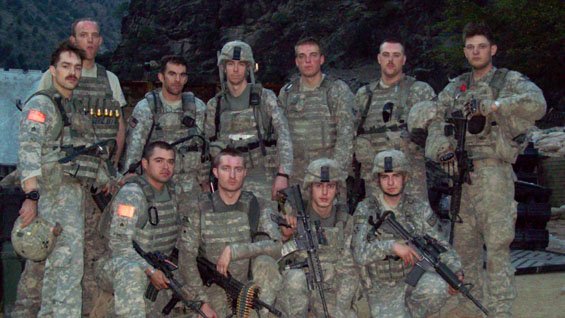
“It was always pursuing that mentality to just be a good leader,” Romesha said, “to have those young kids look up to you just like when I was a brand-new private coming in, looking up to guys like Sergeant [Joseph] Garyantes, those NCOs. I was like, ‘Man, if I could be half the man those guys were, I’d be a fairly decent leader.’ And that really was the significance of staying in and really building my career throughout 10 years leading into Afghanistan.”
That leadership mentality is also part of what made it difficult for Romesha to accept that he was being awarded the Medal of Honor.
“I’ll be honest — part of it was embarrassment,” he said of his initial feelings about the award. “The fact that you sit there, and you’re about to get nationally recognized for ultimately what’s a really shitty day. And part of that embarrassment came from — I know I did a decent job that day, but we also lost eight guys. They never get to come home anymore. They never get to spend time with their families. They never get to have any more birthdays or Christmases or Thanksgivings. I’m still here. That just weighs on you — why am I getting all this attention when I got to come home and those guys didn’t?
“So, initially, it was, like I said, just a deep down sense of embarrassment because as a leader, as good as you think you are or you feel you are,” he continued, trailing off. “They say I saved a lot of guys that day, which I don’t doubt I did. But I feel as a leader, you almost feel like a failure any time you lose anybody, no matter how hard you try and how good the plan was.”
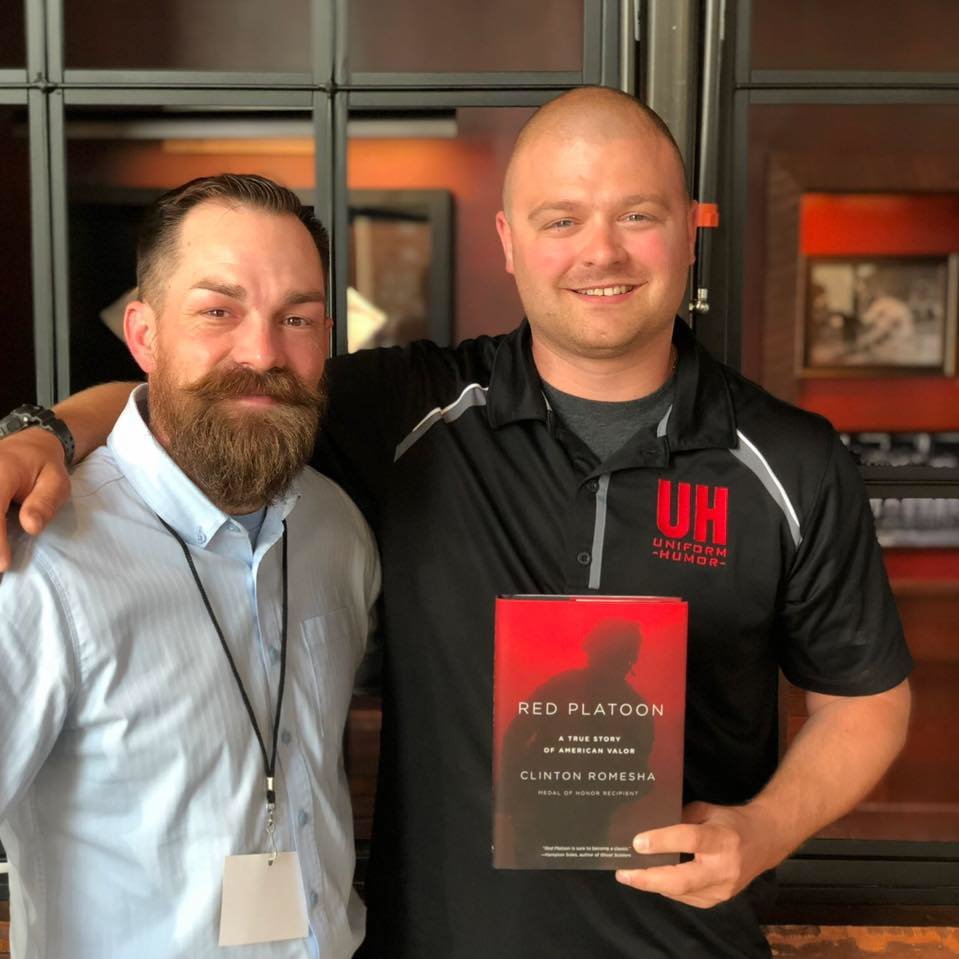
When he got the call about the award, Romesha had been out of the Army for almost two years and was working in the oil fields in North Dakota. He managed a smooth transition from military to civilian life by keeping in touch with his Army buddies and throwing himself into a demanding job.
“I think a lot of things are about timing,” he said. “And the [oil] boom [in North Dakota] was going on, and I fell into a job where I worked 42 days straight before my first day off. We were working 12- to 16-hour days, and I never had that low time of, ‘Oh, man. I’ve just left my entire known adult life behind and all those guys behind.’ I just rolled right into work that gave me a sense of purpose, a direction, and kept me super busy enough not to get caught in that reflection.”
Romesha also took advantage of his 76-mile commutes to and from work to call his battle buddies and catch up.
“Even though I didn’t get to see them every day […] I got to talk to at least one of them,” Romesha said. “And still having that connection was just powerful — to still feel part of that group, even though we were hundreds if not thousands of miles apart.”
He was told his life would change after receiving the Medal of Honor, but he wasn’t sure exactly what that meant. Romesha worked through his unease and natural quietness by continuing to shift the focus away from himself and onto the men who lost their lives during the battle.
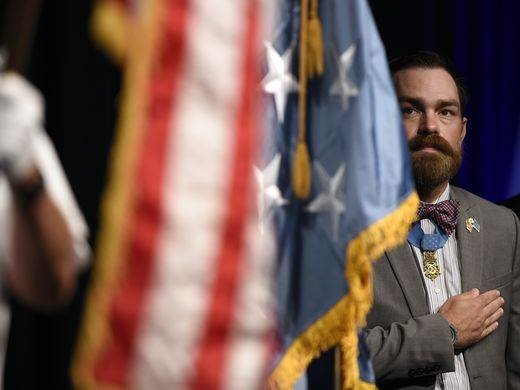
“For me, Oct. 3, 2009, was just a date that I knew when I talked to my buddies I was there with, and we’d reminisce about it. But the rest of the world never really knew about October 3 until Feb. 12, 2013, the day I received the medal. And then almost overnight, on a national level, everybody knew what happened that day. And now you’re sharing that day with everybody,” Romesha said.
“And because sitting there talking to the guys and talking to the Gold Star families, it was also an opportunity to make sure, ‘Look, if I’m getting this attention, well, I can use it for good. I can make sure those guys — Gallegos, Scusa, Kirk, Mace, Hardt, Martin, Griffin, Thomson — those guys will never be forgotten. I can talk about them again. And even though they’re not here, they’re going to always be with us. And that’s what really got me over the embarrassment.”
Romesha applied that same reasoning when he decided to write “Red Platoon.” He didn’t want it to be the Clint Romesha story. So he talked to his platoonmates and the Gold Star families, making sure that they were on board to share their stories, too. For two years, he travelled the country, reconnecting with and interviewing those he served with.
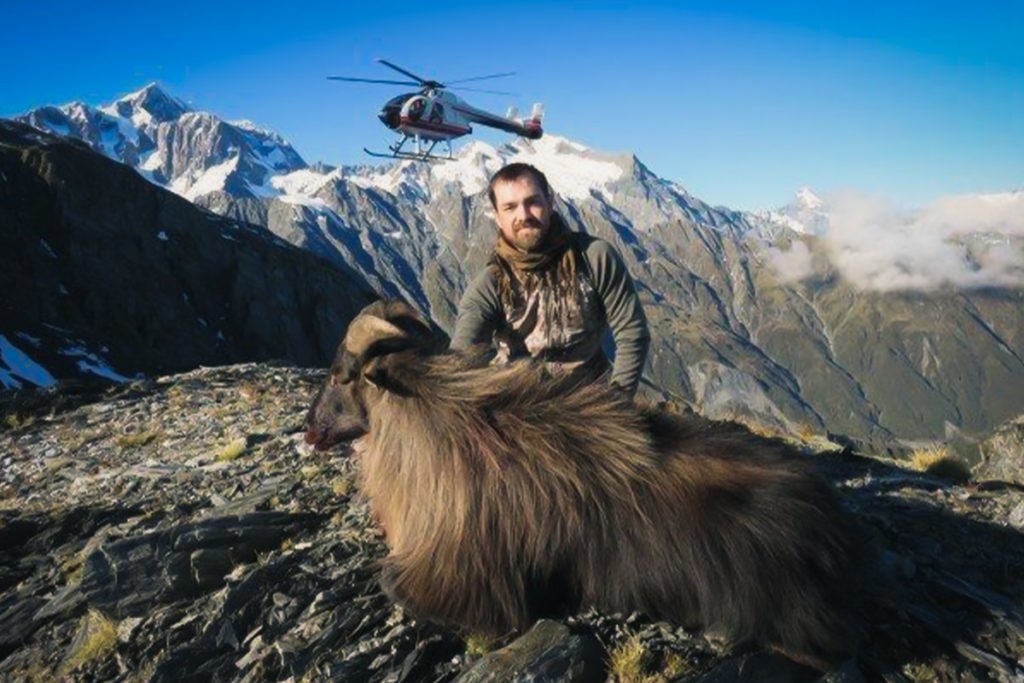
“A lot of these guys hadn’t even talked about that day before with anybody,” Romesha said. “And it was capturing their perspective, and it was, at first, a very scary thing — how is this going to be received? I don’t even know what to expect from going out and doing this — and how are these guys going to react? At the end of the process, though, it was almost therapeutic.”
“Red Platoon” was optioned for a film the year it was released in 2016; however, there hasn’t been any significant momentum on that project. While he’s waiting for that call, Romesha currently spends his time “totally underemployed or overemployed, depending” on the day, with speaking engagements.
“I don’t want to be a career speaker my entire life, but it’s what pays the bills and gives me the flexibility right now to do a lot with veteran outreach and nonprofits,” he said. “Someday I’m going to have to grow up and figure out what my new occupational life’s going to be — but for right now, that’s what’s filling that spot.”
Whatever that next step is for Romesha, he credits the Army for instilling in him the work ethic and value system to get there. From a “check the box” enlistment to Medal of Honor recipient, Romesha has stepped outside of his comfort zone to be a voice not only for the soldiers he lost in Afghanistan, but for the veteran community as a whole.
“We can never forget about our service,” he said. “We can’t let it control us or dictate the rest of our lives, but we can never forget what we’ve been through and what we’ve experienced. It’s all about that follow-on mission and what we can do next and what we can accomplish going forward.”

Katie McCarthy is the managing editor for Coffee or Die Magazine. Her career in journalism began at the Columbus (Georgia) Ledger-Enquirer in 2008, where she learned to navigate the newsroom as a features reporter, copy editor, page designer, and online producer; prior to joining Coffee or Die, she worked for Outdoor Sportsman Group as an editor for Guns & Ammo magazine and their Special Interest Publications division. Katie currently lives in Indiana with her husband and two daughters.
BRCC and Bad Moon Print Press team up for an exclusive, limited-edition T-shirt design!
BRCC partners with Team Room Design for an exclusive T-shirt release!
Thirty Seconds Out has partnered with BRCC for an exclusive shirt design invoking the God of Winter.
Lucas O'Hara of Grizzly Forge has teamed up with BRCC for a badass, exclusive Shirt Club T-shirt design featuring his most popular knife and tiomahawk.
Coffee or Die sits down with one of the graphic designers behind Black Rifle Coffee's signature look and vibe.
Biden will award the Medal of Honor to a Vietnam War Army helicopter pilot who risked his life to save a reconnaissance team from almost certain death.
Ever wonder how much Jack Mandaville would f*ck sh*t up if he went back in time? The American Revolution didn't even see him coming.
A nearly 200-year-old West Point time capsule that at first appeared to yield little more than dust contains hidden treasure, the US Military Academy said.












